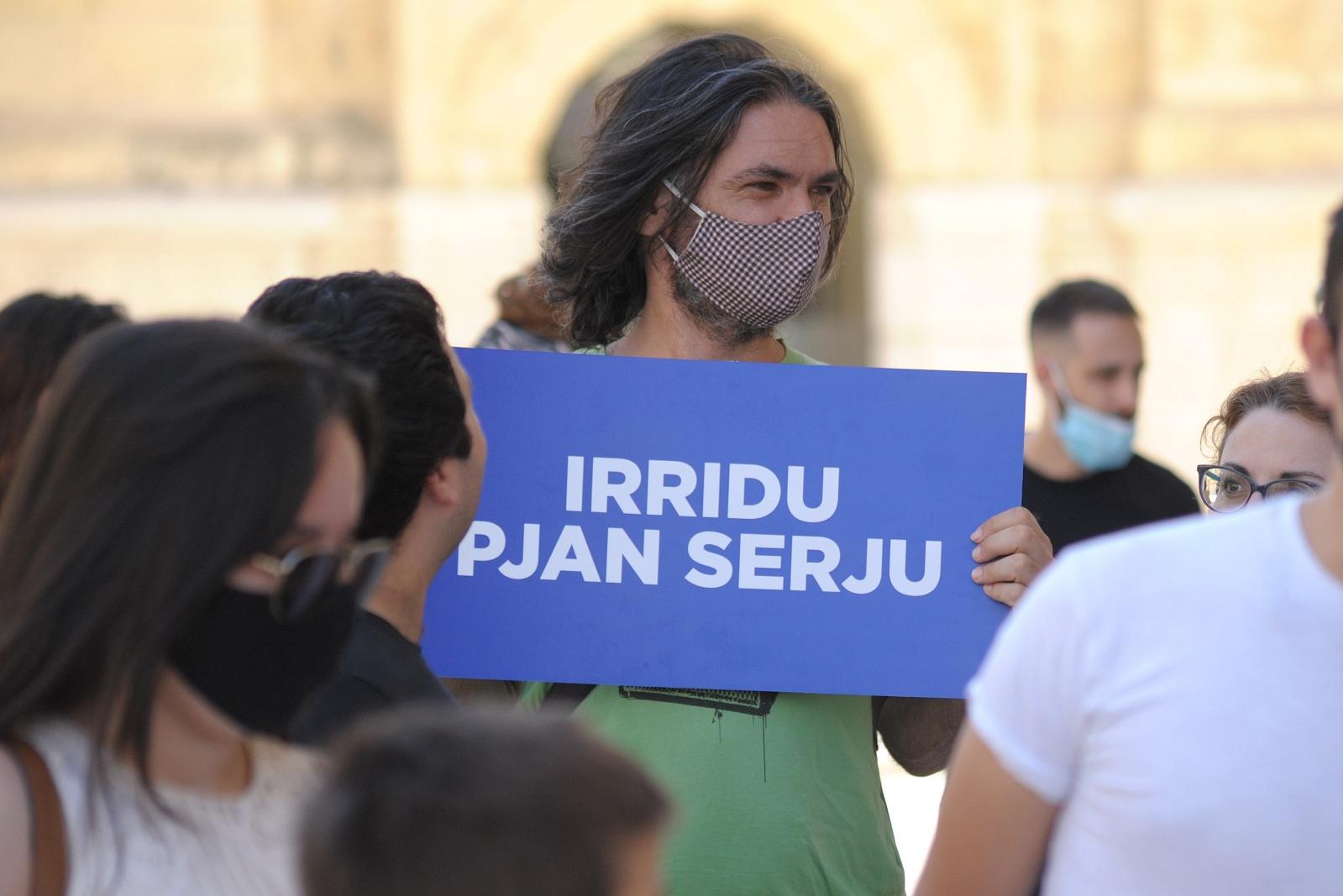- Pregnant women now urged to take vaccine;
- Vaccinated people in contact with COVID-19 case can spend less time in quarantine;
- Numbers for organised seated events can increase from August 16, standing events remain off-limits;
- From mid-September an additional booster dose to be given to immunocompromised and those in homes for the elderly
- 35 people receiving hospital treatment;
- New cases were mainly imported, but spread is now local.
New regulations for events have been announced while vaccinated people may spend less time in quarantine if in contact with a COVID-19 patient.
From August 16, all those who are fully vaccinated need to spend seven days in quarantine instead of 14, Health Minister Chris Fearne told a news conference on Thursday. The quarantine period will end once a negative test is presented.
The number of those attending controlled seated events will also increase from August 16 but standing events will remain barred in what looks like a U-turn.
An 88-year-old woman died of COVID-19 as 78 new cases were reported in the last 24 hours, Fearne told a news conference together with health superintendent Charmaine Gauci.
A total of 35 people are now receiving treatment in hospital, four of whom are in intensive care.
"It is clear that those who are suffering the most are not vaccinated," Fearne said, pointing out that 95 per cent of all cases in Malta are caused by the Delta variant.
Malta has some 1,200 active cases of COVID-19, the same figure recorded in December. At the time there were 160 people in hospital.
New event regulations
Despite the number of COVID-19 cases, the health authorities feel more measures can be relaxed, amid an effective vaccination drive, Fearne said, pointing out that 86 per cent of the population is now fully vaccinated.
From August 16, the number of clusters of people at all seated events can increase from 200 to 300. All those attending have to be vaccinated. From August 30, the number of every cluster can increase to 500 people. It is not clear whether the new rules apply to weddings.
The Malta Entertainment Industry and Arts Association had complained that lack of clarity continues to make it even more difficult for producers, promoters and organisers to plan appropriately for the reopening from August 16.
But the minister said that standing events, at this point, remain barred until at least the end of the month.
Standing events protocols and social distancing cannot be maintained, Gauci said, in what appears to be a change of heart.
"In no way are we saying that standing events will not resume but we need to move forward in a prudent way. Everything must be based on the least risk. Standing events, by definition, cannot have social distancing, and so they are riskier. We are in talks with stakeholders and we might possibly allow their gradual return without putting the hospital at risk."
In the case of weddings, those who opt to increase the number of attendees to 500 must follow the rules for events, with all the protocols, including only allowing fully vaccinated people in, to be followed.
In cases where weddings are capped at 100 guests indoors and 300 outdoors, the same exisiting rules stand, meaning vaccine certificates will not be required upon entry.
 Artists and entertainers have protested about discrimination against their sector. Photo: Matthew Mirabelli
Artists and entertainers have protested about discrimination against their sector. Photo: Matthew MirabelliPregnant women
Fearne said that pregnant women who are in their second and third trimester (13 weeks onwards) are now encouraged to take the vaccine unless told otherwise by their doctor.
This is a marked shift from the previous policy where pregnant women were told not to take the vaccine.
"This is a clear example of how data on the vaccines evolves. Initially, we did not have any evidence and so the advice was to avoid taking the vaccine. Now, it seems that the risks of not getting vaccinated are higher than if you take it," he said.
Level of immunity
The minister said the health authorities are studying the level of immunity in the community.
With new variants emerging, immuno-compromised persons might require an additional dose of the vaccine.
Therefore, from mid-September an additional booster dose will be given to the immuno-compromised and those in homes for the elderly. Around 15,000 booster doses will be needed for the groups identified.
Gauci said the majority of new cases (60%) of COVID-19 in July were coming from abroad. This week the figure dropped to 20 per cent.
"We had a lot of unvaccinated students, over 700 students, and that is why the spike happened. We have closed these schools but allowed the schools to open as long as the students are vaccinated. The cases involving vaccinated persons have been very mild."
Reacting to cases of vaccinated people who still got COVID-19, Gauci said no vaccine has a 100 per cent efficacy but they are still high and have stood the test of time now that months have passed.
Fearne said restrictions will be further reduced if the hospital numbers remain stable.
"But we need to monitor the situation, not just here but also in other countries. If things remain as they are today then yes, we might be in that position even if the number of new cases stays the same."